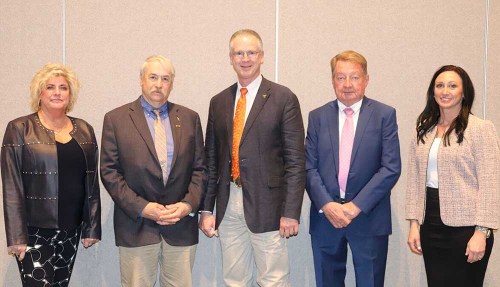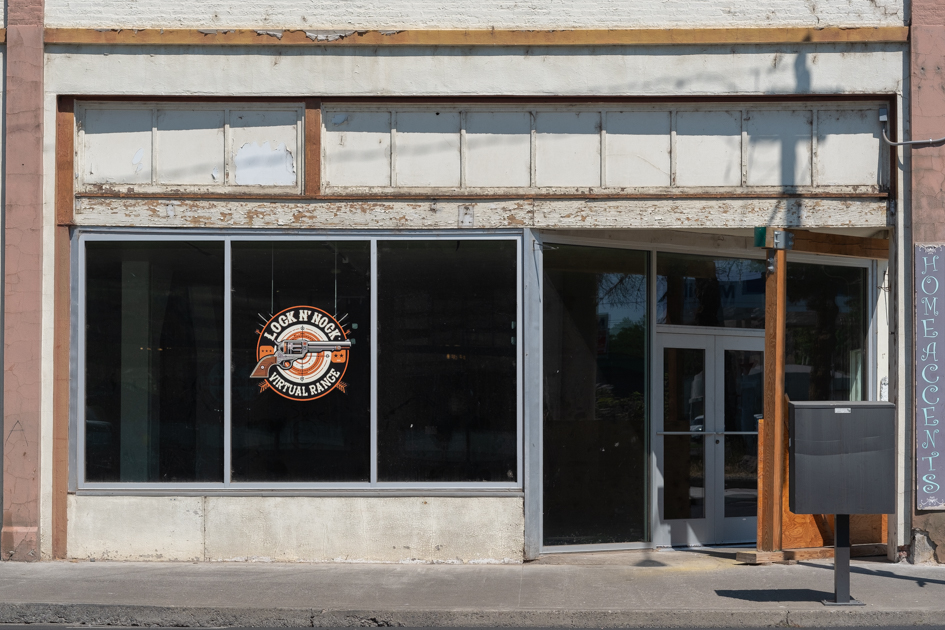Oregon farmer promises to give ‘100% effort’ as new NAWG president
Published 10:00 am Friday, March 31, 2023

- The new National Association of Wheat Growers board: Past President Nicole Berg, of Paterson, Washington; President Brent Cheyne, of Klamath Falls; Vice President Keeff Felty, of Altus, Oklahoma; Treasurer Pat Clements, of Springfield, Kentucky; and Cecretary Jamie Kress, of Rockland, Idaho.
The betterment of the ag industry has always been important to Brent Cheyne.
That’s why the Klamath Falls, Ore., farmer decided to join the leadership of the National Association of Wheat Growers.
Trending
Cheyne took over as NAWG president from Paterson, Wash., farmer Nicole Berg during the Commodity Classic in March in Orlando, Fla.
“As I transition into retirement and turn the family business over to the next generation, I didn’t want to be the dad that had nothing to do but get in his son’s way and clutter up things,” he said. “This was just a very good fit for me to still remain actively engaged and not be a problem to the next generation.”
Wheat farmers can expect “100% effort” from Cheyne, he said.
The association has to be on top of issues such as the farm bill, he said.
“Love the government or hate the government programs, we’ve got to get the best deal for American farmers as a whole — the best farm bill we can get,” he said.
NAWG priorities include maintaining crop insurance programs. Farmers need all the help they can get to remain in business in today’s volatility, he said.
Trending
“In our youth, we’d hear people say (in) a bad year, ‘Well, you stubbed your toe, make it back next year,’” he said. “Well, you don’t stub your toe any more. Today’s prices, you cut your throat. Without the insurance program, there would be no recovering or surviving what was a speed bump 50 years ago.”
He also wants NAWG to keep the Environmental Protection Agency on track with licensing and labeling of farm products that’s as “transparent and pretty painless as possible.”
As the wheat industry’s advocacy arm, NAWG will be “heavily” involved in other political processes, Cheyne said.
“Legislation of any type that could be beneficial, we’ll work to pass,” he said. “Anything detrimental, we’ll pull out all the stops to get the legislation tabled or done away with entirely.”
He farms in Klamath Falls, “or what’s left of it,” he said. With son Rodney, he raises wheat, barley, oats, alfalfa and Angus cattle.
Cheyne estimates he’s “somewhere between part way and most of the way” in transitioning the farm to his son.
“I’m not ready to retire completely, but so far as is yet known, no one has ever gotten any younger,” he said. “It’s time to let him take over and me to step back.”
Farming is the only thing Cheyne’s ever wanted to do. He started on his own in 1973 on land his grandfather bought in 1909.
Cheyne is the fourth generation of his family to farm. Rodney is the fifth generation. Cheyne hopes one of Rodney’s children will decide that they are going to be the sixth generation to farm.
“But if there’s the sixth generation, I think it will be somewhere besides the Klamath Project, as I think it’s just about all over here,” he said, expressing concern about the Yurok Tribe’s recent filing for a preliminary injunction as part of its lawsuit against the U.S. Bureau of Reclamation and National Marine Fisheries Service. The injunction would block providing water to farmers until the needs of endangered fish species are met.








